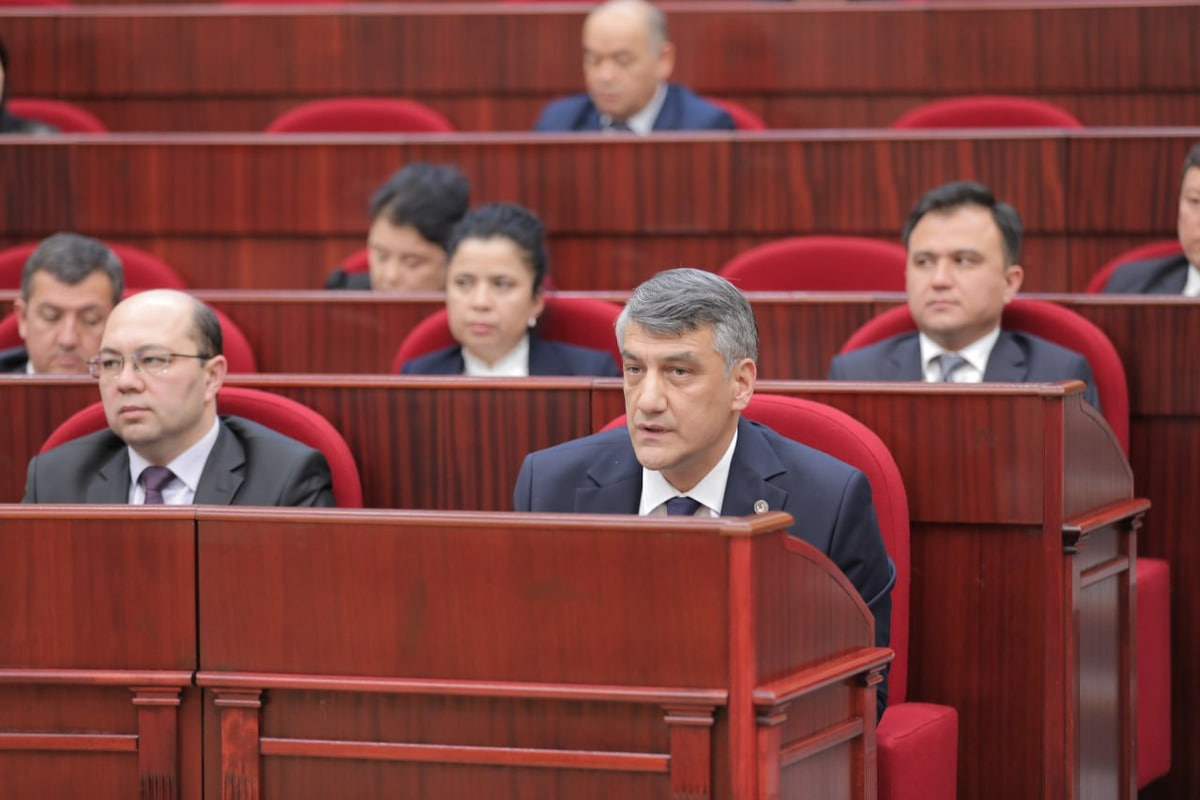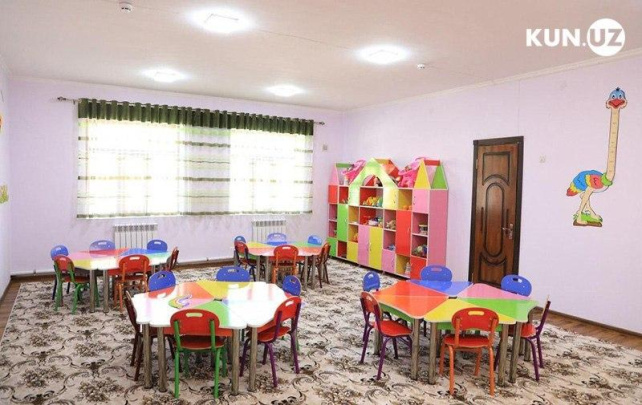Alisher Kodirov’s proposal to reinstate school textbook fees sparks parliamentary debate
On November 26, 2024, Alisher Kodirov, leader of the Milliy Tiklanish Democratic Party and a member of Uzbekistan’s Legislative Chamber, proposed revisiting the policy on school textbook rental fees and teacher salary structures during a parliamentary session on the 2025 state budget. The discussion, streamed live on the Legislative Chamber’s YouTube channel before being removed, focused on improving the education sector’s efficiency and outcomes.

Photo: Legislative Chamber
The draft budget suggests reinstating rental fees for school textbooks, which had been abolished in 2022. Under the proposal, students from grades 2 to 11 would pay 80,000 UZS per set, potentially reducing the state budget burden by approximately 376 billion UZS. However, Kodirov expressed concerns about the fairness and practicality of the measure, urging a thorough review.
Kodirov highlighted inefficiencies in utilizing the significant funds allocated to education, questioning whether the nearly 50 trillion UZS planned for teacher salaries would deliver the desired results. He proposed a competitive salary system that rewards high-performing teachers while incentivizing underperformers to improve or leave the profession.
“Let’s create a competitive system where good teachers earn more, and those performing poorly earn less. This approach would encourage competition among educators, ensuring better outcomes for our children,” he stated.
Kodirov also stressed the importance of paying quality teachers fairly, suggesting that the current system’s inefficiencies hinder progress in the education sector.
The MP called for state-funded extracurricular activities, including sports, technical, and language clubs, to be accessible to all students within the school system. While 500 billion UZS is earmarked for such activities targeting children from low-income families, Kodirov proposed expanding the initiative to cover all schools across the country.
During the session, Kodirov recommended using state funds to produce films promoting national identity and patriotism, ensuring their broadcast on national television for broader outreach. He also supported the tax exemption policy for private schools and kindergartens.
Meanwhile, fellow MP Qizilgul Qosimova voiced concerns about the impact of low salaries on the quality of education and healthcare services. Deputy Prime Minister Jamshid Kuchkarov acknowledged the complexity of the issue, emphasizing the challenge of determining who deserves higher salaries and why.
Kuchkarov noted that teachers and healthcare workers with international certifications or exceptional test results could qualify for higher pay. For example, a small percentage of teachers currently earn up to $1,000 monthly due to international qualifications and outstanding performance.
Despite nominal wage growth in Uzbekistan, the education and healthcare sectors continue to experience slower salary increases, further widening the pay gap with national averages. By the end of September 2024, average salaries in education and healthcare remained significantly below the national average, underscoring the need for systemic reforms.
Related News

14:46 / 02.01.2025
Affordable learning, global impact: How 42.uz is changing education in Uzbekistan

14:01 / 01.01.2025
Government launches new support program for low-income families

17:52 / 31.12.2024
Eriell workers demand unpaid salaries and compensation after four-month delay

08:42 / 30.12.2024



